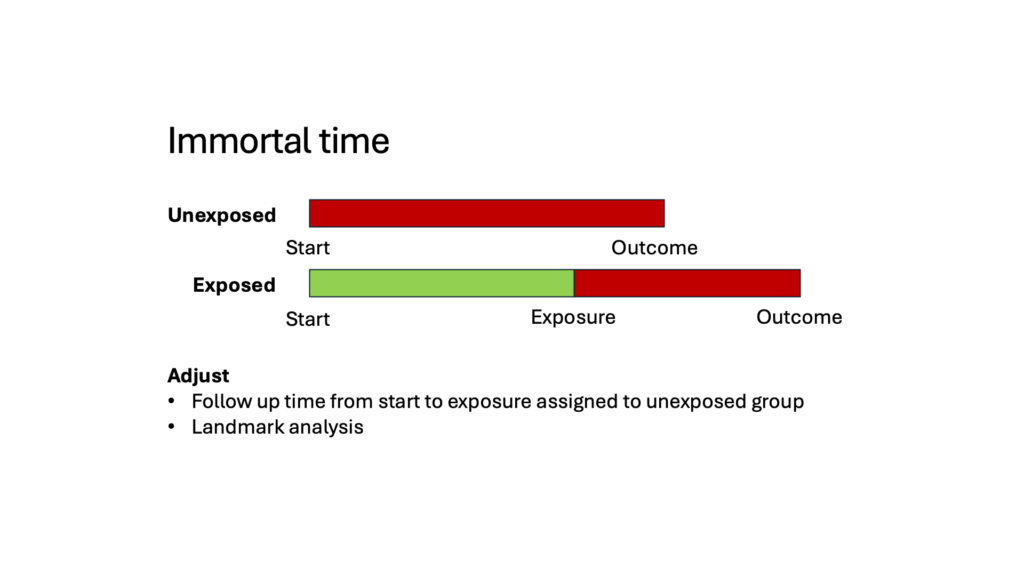Immortal time bias occurs when subjects are grouped together on a risk factor that is unknown at the start, but identified later. During the time from the start of the study to exposure to the risk factor, the subjects are ‘immortal’. For example, the pope and eminent people exceed national life expectancy. Oscar winners outlive other performers.
In orthopaedics, an example is early vs delayed surgery for hip fractures. Results are biased as patients who had delay in surgery likely were likely unfit and required optimisation.

It is possible to correct for immortal time bias and methods are described here.